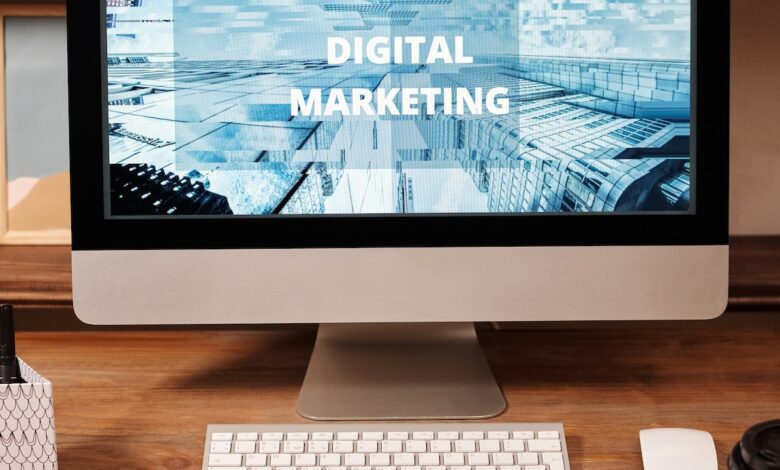7 Marketing Trends Every Business should Embrace 2023.

Success in the highly competitive business environment of today depends on remaining one step ahead of the game. As 2023 approaches, businesses must stay current with marketing trends in order to be relevant and successfully connect with their target demographic. This article will examine seven marketing trends that every company should use in 2023 in order to get a competitive advantage and accomplish their objectives.
Due to changes in consumer behaviour and technological breakthroughs, the marketing environment is always shifting. Businesses must adapt and embrace new techniques that follow the most recent trends if they want to maximise their marketing efforts. Let’s explore the seven marketing trends that will rule the commercial environment in 2023.
Personalization
Successful marketing techniques now place a strong emphasis on personalization. Customers demand individualised experiences that are catered to their requirements and interests. Businesses may learn more about their customers and create tailored content, recommendations, and offers by utilising data analytics and artificial intelligence. Personalization builds long-term client loyalty, boosts conversion rates, and improves customer engagement.
Read More: Creating a Positive Company Culture: Tips for Business Owners (2023)
Voice Search Enhancement for Marketing Trends
Voice search is becoming more and more popular as a result of the development of voice assistants and smart speakers. To guarantee that your company appears in voice search results, you must optimise your website and content for voice search. To increase voice search exposure, businesses should concentrate on developing conversational and natural language content, optimising for long-tail keywords, and enhancing website speed and mobile compatibility.
Video Advertising
As a result of the exponential expansion of platforms for marketing trends like YouTube and TikTok, video has become the most popular type of content consumption. Your plan can be considerably improved by including video marketing to raise brand exposure, engagement, and conversion rates. Businesses marketing trends may effectively communicate their message and establish a stronger connection with their audience through the use of video content, whether it be product demonstrations, instructional films, or live streaming.
Read More:Creating a Positive Company Culture: Tips for Business Owners (2023)
Using influencers
Influencer marketing is still a potent tool marketing trends that companies may use to attract new customers and gain the confidence of their target market. You may reach new markets and increase conversions by working with influencers who share your brand’s values and have a loyal following. Businesses can efficiently market their goods or services and increase the exposure of their brand by utilising the authority and influence of these people.
Marketing with Artificial Intelligence
Numerous sectors have been transformed by artificial intelligence (AI), marketing trends and marketing is no exception. Tools and technologies with AI capabilities can automate monotonous operations, analyse enormous volumes of data, and offer insightful information for wise decision-making. A few examples of how businesses may use AI to improve customer experiences, optimise marketing efforts, and streamline operations are chatbots, predictive analytics, and personalised suggestions.
Automation and AI
Automation and artificial intelligence (AI) technologies are constantly changing the marketing industry. AI-powered solutions may be used by businesses and marketing trends to automate routine operations, personalise consumer interactions, and extract important insights from massive datasets. Businesses may optimise their strategy, boost productivity, and streamline their marketing operations by adopting AI and automation.
Stories on social media
Social media stories, including those on Instagram, Facebook, and Snapchat, have become marketing trends incredibly popular with users. Businesses may display behind-the-scenes content, launch limited-time discounts, and evoke urgency with the help of these transient and genuine posts. Businesses can engage their audience in a more participatory and sincere way through the use of social media tales, strengthening the bond and promoting conversions.
Content Created by Users
User-generated content (UGC) is material produced by users themselves and includes things like social network postings, reviews, and testimonials. UGC has a significant impact marketing trends on how potential customers see a company and develop trust in it. Businesses can use the influence of social proof, expand the reach of their brand, and create a community around their goods or services by promoting and encouraging UGC.
Social Trading
E-commerce and social media platforms are combined in social commerce. Businesses can now directly offer their goods or services through social media apps thanks to the growth of social media shopping. Businesses may more easily reach customers and increase conversions thanks to tools like shoppable posts and in-app checkout that are available on social media platforms like Instagram and Facebook. Businesses can increase sales by embracing social commerce, which takes advantage of the popularity and ease of use of social media.
Marketing with Augmented Reality (AR)
In recent years, augmented reality (AR) has become very popular and offers new potential for marketers. Businesses can utilise augmented reality (AR) to add digital aspects to the physical world, giving customers interactive and immersive experiences. Brands can use augmented reality to demonstrate products in a virtual try-on, provide interactive product demonstrations, or even develop custom branded augmented reality filters for social networking sites. Businesses may engage customers in a distinctive and memorable way by integrating augmented reality (AR) into their marketing strategy.
Micro-Influencers
Although influencer marketing is still successful, there is a move in favour of micro-influencers. These are people that have a tiny fan base yet a devoted and active audience. Businesses can target specific markets and earn genuine recommendations by working with micro-influencers. Micro-influencers frequently have a more intimate relationship with their followers, which fosters greater levels of engagement and trust. Businesses can tap into these passionate networks and get significant outcomes by collaborating with micro-influencers.
Social responsibility and sustainability
Consumers are becoming more attracted to companies that prioritise sustainability and social responsibility in today’s socially conscious world. These values can have a significant impact on how people perceive your brand and how loyal your customers are. You can draw in like-minded customers and set your business apart from rivals by emphasising your eco-friendly practises, philanthropic endeavours, or ethical sourcing.
Conversational marketing and chatbots
Customer service and interaction are revolutionised by chatbots, which are getting more and more complex. Businesses can assist clients immediately, respond to frequently asked questions, and direct them through the buying process by utilising AI-powered chatbots. Conversational marketing is centred on developing unique, one-on-one relationships with clients in order to improve their experiences and foster stronger bonds. Customer care may be streamlined, efficiency can be improved, and conversions can be increased by implementing chatbots and conversational marketing methods.
Conclusion
In conclusion, organisations who want to succeed in the changing business environment of 2023 must adopt marketing trends. Among the developments that can give an advantage are voice search optimisation, personalised marketing, influencer partnerships, video content, AI and automation, social media tales, and user-generated content. Businesses may increase brand recognition, engage audiences, and experience long-term success by remaining informed, reacting to change, and implementing current trends into their marketing plans.
FAQs
What are the commercial benefits of marketing trends?
Consumer preferences and behaviours are changing, and this is reflected in marketing trends. Businesses may stay current, successfully reach their target market, and stimulate growth by embracing these trends.
What are the advantages of voice search optimisation for my company?
Voice search optimisation can increase the visibility of your company in voice search results, which will enable you to increase your market share. Additionally, it improves the user experience by enabling easy, hands-free access to information.
What are the benefits of employing customised marketing tactics?
Businesses may customise experiences for their target audience through personalised marketing methods, which boosts conversion rates and customer happiness. They strengthen customer relationships and increase brand loyalty.
How may influencer marketing contribute to the development of brand trust?
Influencer marketing uses the authority and appeal of social media influencers to advance a product or service. Working with influencers that share your beliefs will enable you to reach their attentive audience and win the trust of potential clients.
Why is user-generated content useful to companies?
User-generated content boosts social proof and authenticity, which affects how your brand is seen. Businesses can expand the reach of their brand and create a feeling of community around their goods or services by promoting and encouraging UGC.












One Comment